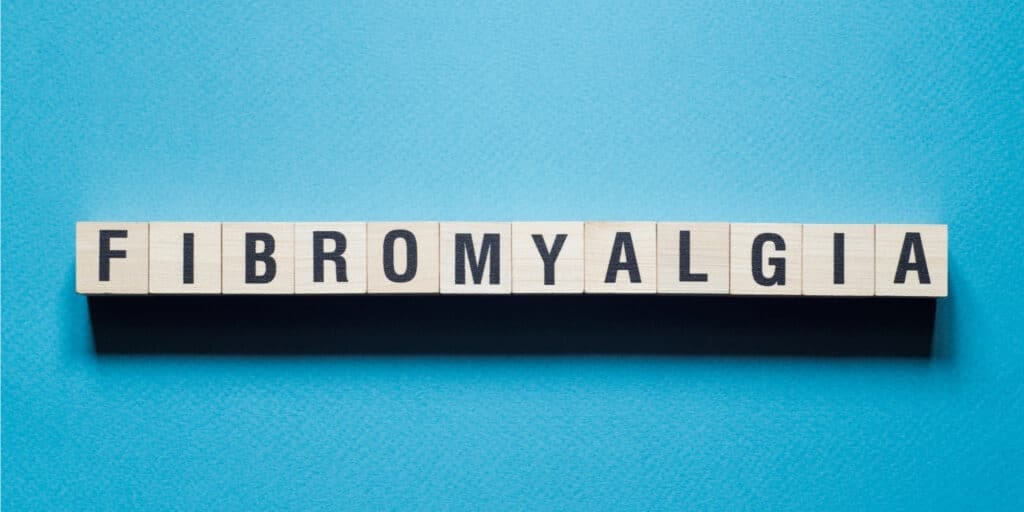Fibromyalgia is a painful, long-term condition that is often clouded in mystery and misunderstanding. Even for experienced healthcare professionals, fibromyalgia can be difficult to understand, as the symptoms can often mimic those of other conditions, and there aren’t any real tests to confirm the diagnosis. Given that fibromyalgia is so hard to understand, it’s no surprise that treatments for it are far and few between. That said, through a new digital fibromyalgia therapy, a new therapeutics company believes it can help patients overcome their pain by simply using their smartphones.
Here’s what you need to know.
What Is Fibromyalgia?
Fibromyalgia is a chronic condition that causes widespread pain and discomfort throughout the body. It can also cause muscle and joint pain, fatigue, and other symptoms that are often misdiagnosed as other chronic conditions. These symptoms can be severe and can affect nearly every aspect of your day-to-day life.
It’s currently estimated that around 2% of the population (roughly 4 million people) suffer from fibromyalgia and fibromyalgia-related pain. Women are twice as likely to develop fibromyalgia than men, although the exact reason as to why is unknown.
The symptoms of fibromyalgia often begin after an event, such as physical trauma, surgery, infection, or significant psychological stress. In other cases, symptoms gradually accumulate over time with no single triggering event.
Currently, there is no cure for fibromyalgia. That said, there are a variety of medications, therapies, and other treatment methods that have been shown to help control symptoms.
What Causes Fibromyalgia?
 The exact cause of fibromyalgia is unknown, which is why it is so difficult to diagnose properly. Many researchers believe that repeated nerve stimulation causes the brain and spinal cord of people with fibromyalgia to change. This change involves an abnormal increase in levels of certain chemicals in the brain that signal pain.
The exact cause of fibromyalgia is unknown, which is why it is so difficult to diagnose properly. Many researchers believe that repeated nerve stimulation causes the brain and spinal cord of people with fibromyalgia to change. This change involves an abnormal increase in levels of certain chemicals in the brain that signal pain.
In addition, the brain’s pain receptors seem to develop a sort of memory of the pain and become sensitized, meaning they can overreact to painful and nonpainful signals.
Other leading theories behind the exact cause of fibromyalgia include:
- Genetics: Since fibromyalgia tends to run in families, there may be certain genetic mutations that may make you more susceptible to developing the disorder.
- Infections: Some illnesses such as the Epstein-Barr virus appear to trigger or aggravate fibromyalgia.
- Physical Or Emotional Events: Fibromyalgia can sometimes be triggered by a physical event, such as a car accident. Prolonged psychological stress may also trigger the condition.
Recent studies have also found a potential link between your immune system and fibromyalgia.
Since our understanding of fibromyalgia is still developing, so too is our ability to treat it effectively. What works for someone else may not work for you, which can make finding the right treatment method difficult.
How Is Fibromyalgia Typically Treated?
Currently, there is no known cure for fibromyalgia. Instead, fibromyalgia treatment focuses on reducing symptoms and improving quality of life. Common treatment methods for fibromyalgia include medications, self-care strategies, and lifestyle changes.
Medications can relieve pain and help you sleep better, and can help reduce the stress on your body. Typically, doctors prescribe over-the-counter medications like ibuprofen or acetaminophen to help with pain and inflammation. In some instances, antidepressants like duloxetine and milnacipran are sometimes used to treat pain and fatigue from fibromyalgia. These medications may also help improve sleep quality and work on rebalancing neurotransmitters.
Other conventional treatments for fibromyalgia include things like yoga, meditation, acupuncture, or other lifestyle changes, all of which have varying degrees of success.
While conventional treatments for fibromyalgia work for some, for many, they only provide temporary relief from symptoms. For these individuals, the need for alternative treatments for fibromyalgia continues to grow. One such treatment is currently being developed which aims to help people manage their fibromyalgia pain using their smartphones.
What Does Digital Fibromyalgia Therapy Look Like?


The new digital fibromyalgia treatment is based on a type of therapy known as an acceptance and commitment therapy (ACT) program. ACT is an action-oriented approach to psychotherapy that stems from traditional behavior therapy and cognitive behavioral therapy.
“We basically used [ACT] as a basis for our program and then really built on top of it, and adapted it to a sort of experience that would work great for a modern-day smartphone interface,” says Mike Rosenbluth, the founder and CEO of Swing Therapeutics.
Outside of the conventional world of treatments for fibromyalgia, there is growing evidence that ACT can help patients who live with chronic pain (including fibromyalgia).
One meta-review of 25 studies on ACT and chronic pain, found that ACT therapy had small effects on pain intensity. However, it also showed that the therapeutic process of teaching patients to accept their pain (but not ignore it) was linked with moderate and long-term improvements in depression, anxiety, and quality of life.
“What ACT does is it tries to help people accept those symptoms and things that are uncontrollable. It helps people think about their values — what is really important to them,” says Rosenbluth. “And then they try to make behavior-based changes aligned with those values.”
The digital fibromyalgia therapy platform is designed to be prescribed by a doctor as a treatment management tool. Once prescribed, the patient would enter a 41-session acceptance and commitment therapy program that’s run entirely on their phone, and broken into “daily doses.” A “daily dose” might include a prompt for a mindfulness session or a short writing prompt.
In an early randomized controlled trial on 67 participants, completing the course was linked with improvements in depression symptoms and improvements in patients’ scores on the Fibromyalgia Impact Questionnaire (FIQ-R), which measures the effects of fibromyalgia on sleep, pain perception, fatigue, or psychological distress. The course appeared to help patients improve their “pain acceptance” and through that mechanism the experience of fibromyalgia.
Currently, this new digital fibromyalgia therapy is still in testing, but the FDA breakthrough designation could help see it through clinical trials, and eventually to your smartphone.
What Are Your Thoughts About Digital Fibromyalgia Therapy?
Tell us in the comments below!
What topics related to fibromyalgia should we cover next?
Email us your ideas at info@painresource.com
Are you a member of our online Chronic Pain community?





I personally would be very interested in this. I have Gulf War Syndrome which includes fibromyalgia and other conditions that cause chronic lain and depression. I have been suffering for years and had many surgeries but i am finally starting to come to grips with the pain and just live with it. I am an artist and before i just wasn’t doing my art much but recently in last 2 years i began painting again. I sold my 1st painting last week. But the art gives me an outlet. This digital therapy seems similar. The only thing that concerns me is the cost. How do I sign up or find out more? Great article. Thanks. I think this would benefit many people.